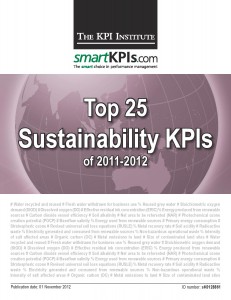
Quarterly KPI highlights: balancing employee well-being, sustainability, and service efficiency
June 18th, 2025 Posted by Kimberly Tilar KPIs 0 thoughts on “Quarterly KPI highlights: balancing employee well-being, sustainability, and service efficiency”
Balancing business priorities can feel like maintaining a three-legged stool—if one leg is weaker or shorter than the others, stability is lost. In the same way, organizations today must give equal attention to employee well-being, sustainability, and service performance to achieve long-term success. Each leg represents a critical area of performance, and without clear indicators to measure and manage them, efforts can falter despite the best intentions.
Aon’s 2022–2023 Global Wellbeing Survey reveals that employee well-being has become a leading priority for employers across the Asia Pacific (APAC) region, with nearly 40% identifying it as their top focus for the next five years. Since 2020, investments in well-being programs in APAC have increased by 27%, and half of the surveyed companies now allocate at least 4% of their total company and benefits budgets to well-being initiatives. However, despite these growing commitments, employee well-being continues to decline. The data shows that 38% of employees are at risk of mental health challenges, and over 65% are already experiencing burnout.
On the consumer side, sustainability is gaining ground as a key purchasing driver. A 2024 PwC survey revealed that consumers are willing to pay an average premium of 9.7% for goods that are sustainably produced or sourced, even in the face of economic uncertainty. Supporting this trend, research shows that strong environmental, social, and governance (ESG) performance is increasingly linked to stronger financial returns. According to Kroll’s ESG and Global Investor Returns Study, companies categorized as ESG Leaders achieved an average annual return of 12.9% globally, substantially higher than the 8.6% return of ESG Laggards. This reflects a nearly 50% performance premium for companies with high ESG ratings.
At the same time, service efficiency remains a key differentiator in customer loyalty. In the Contact Center Trends 2025, research reveals that call centers that minimize wait times tend to build stronger customer loyalty. When customers are satisfied with how long they wait, they are three times more likely to recommend the brand and 2.6 times more likely to trust it and make repeat purchases.
In light of these trends, it is more important than ever for organizations to adopt a balanced approach to performance management. One that reflects the interconnected nature of well-being, sustainability, and financial outcomes. This quarter, The KPI Institute spotlights three key performance indicators (KPIs) of the Month, and each illustrates how organizations can track and balance people, planet, and profit.
KPI of April: % Employee Burnout Rate – This metric measures the proportion of employees experiencing symptoms of burnout during the reporting period. This KPI is used to assess workplace conditions and track overall employee well-being.
Burnout poses serious risks to productivity, engagement, and employee retention, which is why organizations need to track it early and take preventive action. Using reliable tools like the Maslach Burnout Inventory (MBI) can support accurate assessment. The MBI consists of 22 items that evaluate emotional exhaustion, detachment, and a diminished sense of achievement. To learn more about this tool and others like it, you can download the free digital poster from the TKI Marketplace.
KPI of May: $ Carbon offset investments – This indicator tracks the organization’s investment in purchasing or generating carbon offsets, each equivalent to one metric ton of carbon dioxide reduced or removed from the atmosphere. These offsets typically support certified projects aimed at lowering greenhouse gas (GHG) emissions. The main goal is to help organizations reduce their carbon footprint and contribute to global climate action.
Various registries offer carbon offsets, with prices ranging from as low as $1 to over $30 per metric ton, depending on the project’s type, quality, and certification. An analysis by Carbon Brief shows that top carbon credit buyers from 2020 to 2022 include Shell, Volkswagen, and Chevron. Want to learn how to get started with carbon offsetting and align your environmental KPIs with global standards? Download the free digital poster via the TKI Marketplace.
KPI of June: % First call resolution rate – This metric tracks the percentage of customer inquiries resolved during the first interaction with a service representative, based on the total number of unique inquiries received within the reporting period. It serves as a key indicator of how efficiently and effectively the customer service team handles issues without the need for follow-ups.
Research by the Service Quality Measurement (SQM) Group shows that the average % First call resolution rate among call centers ranges from 70% to 79%. Achieving a % First call resolution of 80% or higher is considered world-class level reached by only 5% of call centers. Boost your service team’s performance and hit that world-class benchmark. Explore the free digital poster on the TKI Marketplace.
These digital posters are part of the KPI of the Month series by The KPI Institute. It is a free infographic series designed to provide practical insights into the application of key performance indicators. Each edition focuses on one specific KPI, offering clear explanations of terminology, addressing common challenges in its use, and outlining essential details such as its definition, calculation, Balanced Scorecard relevance, data profile, typical targets, and actionable recommendations.





